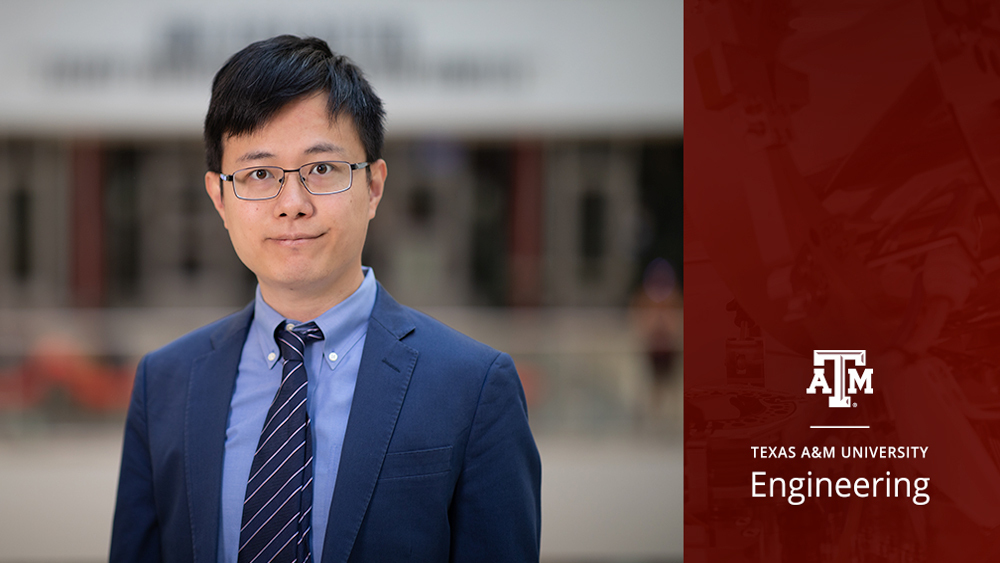
Dr. Yang Liu always knew he wanted to make a difference in the fight against climate change and is passionate about utilizing nuclear energy to combat this important issue. As a new faculty member in the Department of Nuclear Engineering at Texas A&M University, Liu can continue this mission.
“Texas A&M is one of the greatest engineering schools in the nation,” Liu said. “The Department of Nuclear Engineering is the second-ranked, largest public university program–based on student enrollment–in the country, so it's a great opportunity for me. I'm very honored to be here.”
Liu aims to teach the next wave of capable engineering students and research ways to connect artificial intelligence and machine learning tools to nuclear energy problems in his position as an assistant professor.
“The ultimate goal of my research is to adopt new tools to support faster development and deployment of advanced nuclear technologies,” Liu said. “This is important as we're now fighting climate change and trying to reduce carbon emissions. Nuclear is one of the greatest energy sources that is both clean and reliable to achieve this.”
In addition to the opportunity to conduct impactful research, Liu was drawn to the welcoming community Texas A&M has to offer.
“The people here are really kind and helpful,” Liu said. “During my onboarding and training process, I met a lot of friendly people willing to provide guidance, resources and instruction. They helped me make the transition from a researcher to both a researcher and a teacher. I'm very grateful for that.”
Liu started his educational path in China where he received his bachelor’s degree in nuclear engineering from Tsinghua University and his master’s degree from the China Institute of Atomic Energy. He then traveled to the United States where received a doctorate in nuclear engineering from North Carolina State University.
“The United States performs, perhaps, the greatest research in the world, and naturally, a lot of us want to pursue research here,” Liu said. “I found that the opportunities and resources in the U.S. best fit my goal.”
After attending NC State, Liu joined the University of Michigan working as a postdoctoral researcher for a little more than a year. He was a research staff member at Argonne National Lab during the following four years.
Liu is open to collaborating with undergraduate and doctoral students to help with his innovative research.
“I am most excited for the opportunity to work with lots of talented and self-motivated students,” Liu said. “I’m also looking forward to opportunities to collaborate with other faculty members, not only within our department and the college but with faculty from other universities.”